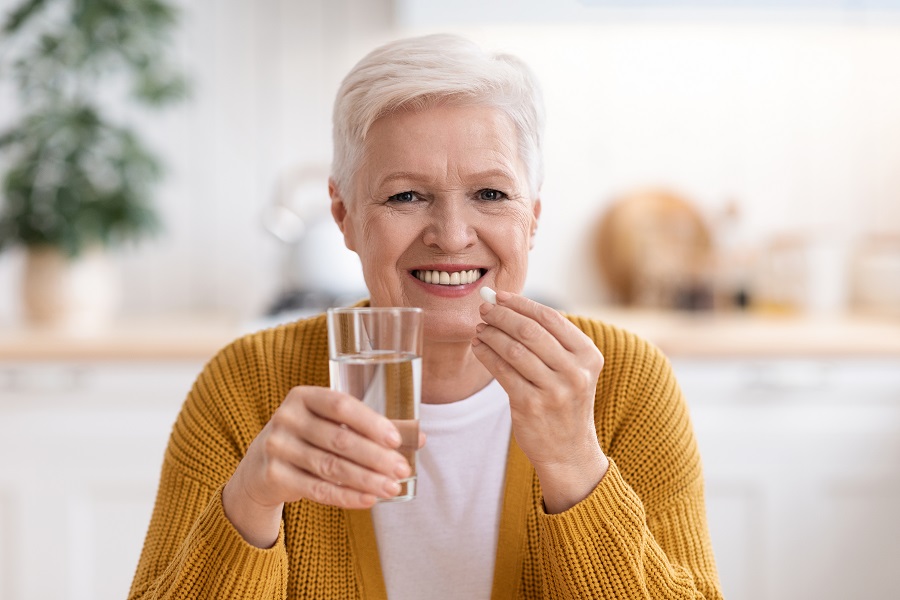Scientific studies show that an adequate supply of energy and nutrients helps the body maintain stable physiological functions, preserve tissue and promote cell regeneration. Diet and nutrition play a key role in how the body ages, modulating the changes associated with this process. Although its impact may seem minor, it is one of the transcendental factors related to aging. This is why it is important to constantly assess the nutritional status of the elderly.
As a result of all the changes that come with old age, many adults may become malnourished, consuming fewer calories, proteins and other nutrients than the body needs; This results in significant weight loss, fatigue and lack of appetite, wounds that take a long time to heal and the appearance of ulcers in pressure areas, bone fractures that take a long time to consolidate due to alterations in the adequate absorption of calcium, phosphorus and vitamin D; anemia due to a lack of iron, vitamin B12, vitamin E and folic acid, among others.
Note that it is essential to consume daily plenty of vegetables and fruits of different colors, raw and cooked, drink milk and derivatives low in fat, prefer fish, turkey, chicken or red meat without fat (black and pink goose, chicken fillet) eat legumes and whole grains and drink plenty of water.
Similarly, water is one of the most important elements of the diet of the elderly, necessary to maintain the homeostasis of the body, due to its fundamental role in the regulation of cell volume, transport of nutrients, elimination of waste and regulation of body temperature.
Vitamins are Necessary

Regarding vitamin needs in the elderly, there is evidence to support increased recommendations for vitamins B6, B12, folic acid, E, C and B-carotene to adequately maintain cognitive function, immune response and glucose tolerance, as well as provide protection against oxidative damage since they act as antioxidant elements contributing, among other things, to reduce the risk of suffering from certain types of cancer and also prevent the elevation of homocysteine, an important risk factor for cardiovascular disease and cognitive disorders.
For these reasons, we suggest the following foods that older people should ideally consume daily in order to cover the minimum requirements of the above-mentioned nutrients:
– Whole grain bread or cereals.
– Some dark green vegetables such as spinach and chard.
– Carrots, beets or pumpkin.
– Citrus fruits (kiwi, orange, grapefruit or lemon).
– Skim milk products.
– Meat such as beef or chicken, consider including fish 1-2 times a week and legumes or flour once a week.
– Olive or avocado oil or seeds (nuts, almonds).
Forbidden Foods
As in all ages, the elderly also have certain restrictions in their diet, so in general it is recommended to avoid, especially at dinner time. For instance, foods that are difficult to digest, such as preparations rich in fat like fried foods, whole creams, yellow cheeses, meats such as casserole and pork chop, cold cuts; Condiments such as chili, pepper, cumin; also strong coffee, alcohol, because they can be irritating to the gastric mucosa or stomach lining, as well as the consumption of tea and coffee can alter the sleep in addition to being diuretic, which contributes to dehydration, an important reason for the elderly who drink little liquid.
In the same vein, the consumption of alcohol should be limited to one glass per day of red wine and accompanied by meals, this is mainly because alcohol alters the effect of drugs and this could cause accidents.
On the other hand, it is also necessary to be careful with excess salt or foods rich in salt such as French fries, twigs or other snacks. Salt is directly related to the increase in blood pressure, a pathology that is very common in the elderly, as well as salt has been identified as an independent risk factor for the development of cardiovascular disease. In addition, a high consumption of salt is associated with an increased risk of developing gastric cancer and mortality for the same cause.
There you are! You now know more about creating the perfect diet for the elderly community. Do you have any other suggestions? Share them in the comments below.





[…] buying a stairlift, you must consider certain essential points, particularly ergonomics. Indeed, the device must be […]